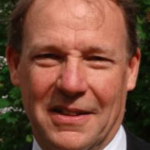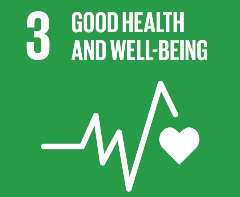-(1).jpg)
Changing understanding and treatment of Aspergillus disease globally
More than 300 million people worldwide suffer from serious fungal infections and around two million die each year. Research at The University of Manchester is improving patient survival and quality of life, from diagnosis though to drug development.
This work delivers on the UN Sustainable Development Goal 3: ensure healthy lives and promote wellbeing for all at all ages.
Key facts
- Led to licensure for the world's first-line therapy for invasive Aspergillosis
- Described new nature of disorders caused by Aspergillus
- Developed the UK’s first nationally commissioned infectious disease service and the world’s first national clinical centre for a fungal disease
From research to treatment
The common airborne fungus Aspergillus is unavoidable and causes a broad range of disease including life-threatening aspergillosis, chronic pulmonary aspergillosis, and allergy.
Chronic pulmonary aspergillosis is often confused with TB and has a five-year survival rate of less than 50%. Surgery had previously been the standard treatment, but research, led by Dr David Denning, Professor of Infectious Diseases in Global Health, demonstrated the value of antifungal therapy.
Antifungal drug development research led to global approval of voriconazole, which was later granted World Health Organization (WHO) ‘Essential Medicine’ status. It is the globally recommended treatment for invasive aspergillosis and is available in more than 115 countries.
The first coherent clinical description of Aspergillus bronchitis was created through case observations which subsequently provided criteria for diagnosis. This represents an important new clinical entity (nature of the disorder) in respiratory medicine, particularly affecting those with bronchiectasis. More than 80 research papers describe the epidemiology and clinical course of fungal disease which has directly led to improved diagnostic capacity and antifungal therapy.
A whole-spectrum approach
This research has also changed several areas of clinical guidance on disease treatment and management. The team provided a new conceptual framework, including the introduction of new terminology now used globally for epidemiology and prospective studies, as well as improving the evaluation of diagnostic methods. These disease terms have been incorporated into the International Classification of Diseases 11th Revision (the global standard for diagnostic health information).
The scale of the problem of fungal disease is much greater than previously realised because of past failures in diagnostic investment. The contributions of Professor Denning and The University of Manchester to highlighting this huge gap and addressing it with diagnostic and antifungal research is enormous and of global importance.
Professor Dr Andrew Ullmann / Member of the German Bundestag and Deputy Chairman of its Global Health Subcommittee
With multiple disease entities caused by the same fungus, which are diagnosed and managed differently, this work transformed disease approach and diagnosis. It described antifungal resistance to azoles, and then defined optimal methods for testing which is now a global issue, partly related to azole fungicide use on crops.
International collaborations resulted in changes to existing diagnosis and treatment guidelines and enabling Aspergillus antigen and antibody diagnostic tests to be listed as Essential Diagnostics by the WHO. This diagnostic labelling was fundamental for the subsequent development of novel treatment approaches.
The research has also led to the creation of the first nationally commissioned infectious disease service and the world’s first national clinical centre for a fungal disease. Commissioning was based on Professor Denning’s clinical research expertise, clinical care complexity, the need for specialised investigations, and antifungal drug cost.
The team's global perspective and whole-spectrum approach to research has changed the entire disease management pathway for Aspergillus disease, from diagnosis to drug development and improving clinical practice.


